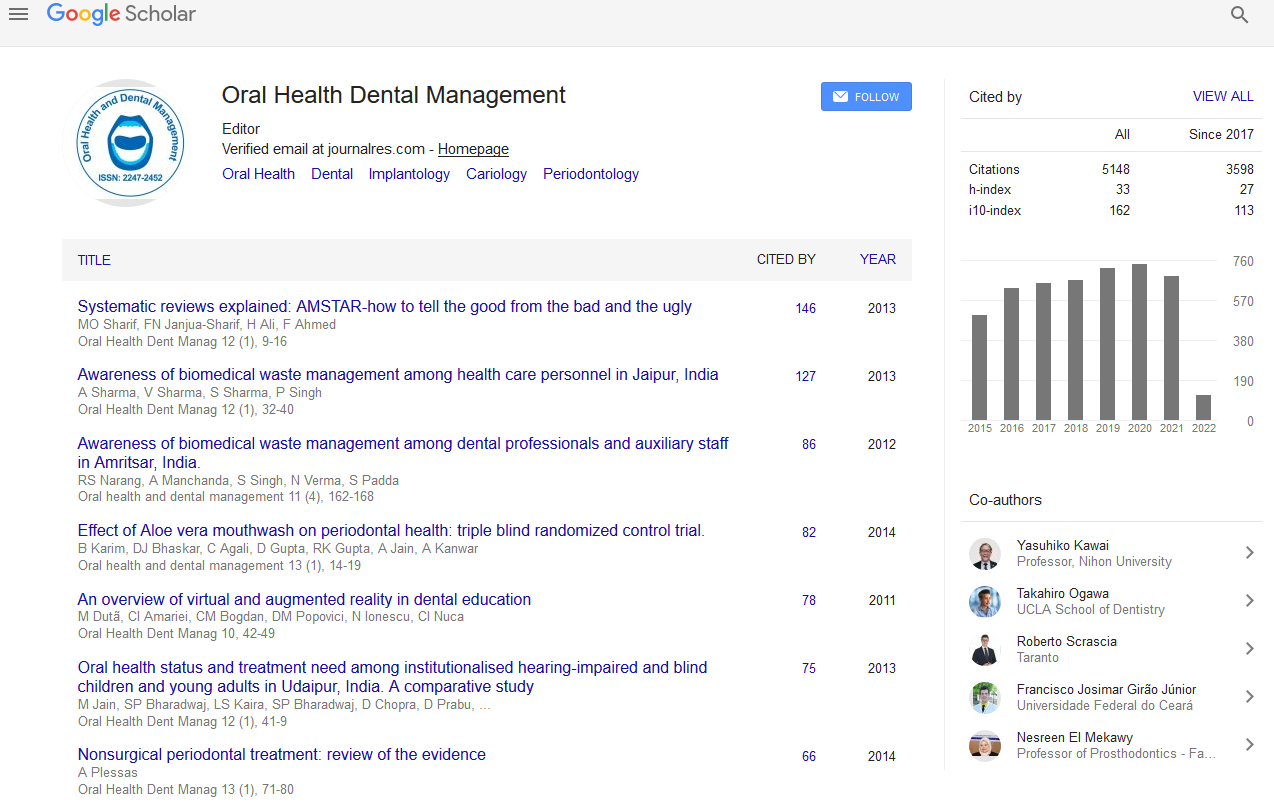Indexed In
- The Global Impact Factor (GIF)
- CiteFactor
- Electronic Journals Library
- RefSeek
- Hamdard University
- EBSCO A-Z
- Virtual Library of Biology (vifabio)
- International committee of medical journals editors (ICMJE)
- Google Scholar
Useful Links
Share This Page
Journal Flyer

Open Access Journals
- Agri and Aquaculture
- Biochemistry
- Bioinformatics & Systems Biology
- Business & Management
- Chemistry
- Clinical Sciences
- Engineering
- Food & Nutrition
- General Science
- Genetics & Molecular Biology
- Immunology & Microbiology
- Medical Sciences
- Neuroscience & Psychology
- Nursing & Health Care
- Pharmaceutical Sciences
Abstract
Surveillance Study on Nasal and Hand Carriage of Methicillin-Resistant Staphylococcus aureus (MRSA) among Dental and Medical Staff and Students of a Medical University
Anita Devi Krishnan Thantry, Neoh Ping Sern, Susila RamNavas, Sanggetha Ramachandran, Min Zin Tan, Neelakantan Viswanathan
Staphylococcus aureus (S. aureus) is a ubiquitous bacterium which commonly colonizes the human body and is an important nosocomial and community acquired pathogen. Increasing reports of antibiotic resistance to various drugs and occurrence of methicillin resistant strains compound the problem. This study was conducted on dental and medical staff and students (current and future health care providers) to detect the colonization of S. aureus and the methicillin resistant strains among them. A total of 147 participants were screened for colonization of S. aureus in the anterior nares and hands. The nasal and hand swabs were processed according to standard Clinical and Laboratory Standards Institute (CLSI) guidelines, namely formation of yellow colonies on Mannitol Salt Agar, catalase and coagulase test. Antibiotic susceptibility testing for common antibiotics was also performed according to CLSI guidelines. Data analysis was performed using SPSS version 21. 100 isolates of S. aureus (35%) were obtained which was confirmed by standard laboratory procedures of which 3 isolates were methicillin resistant. All the MRSA strains were confirmed by PBP2 latex agglutination test and E test. Varying levels of resistance to common antibiotics was noted in the study. The study showed 35% colonization by S. aureus on the hands and nares of health care providers. Three isolates were methicillin resistant (methicillin resistant S. aureus/MRSA) which was confirmed by E test and PBP2a latex agglutination test. This study highlights the need to educate health care personnel on prevalence of S. aureus carriage and good practices for prevention of its spread. Colonisation of community acquired MRSA (CA-MRSA) in hospital personnel is best detected by screening and decolonization measures should be advised.

